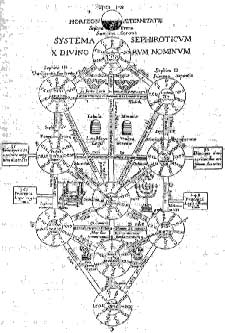Living in the town of Tzefat in 16th-century northern Israel, Rabbi Isaac Luria dwelt among Spanish-Jewish exiles who traded heavily in the mystical concepts of kabbalah, ancient received wisdom. Rabbi Luria, sometimes referred to by his acronym, the AR”I (Elohi Rabbi Yitzhaq, the divine Rabbi Isaac), crafted a new approach to kabbalah which envisioned God’s tzimtzum (contraction) in creating the world. This tzimtzum caused the infinite light of God to be poured to overfilling into the vessels that had contained the ten sefirot (Divine emanations) of the Tree of Life, causing many of them to shatter. Some of these vessel fragments became bound up with sparks of the original light in impure qelipot (shells). Rabbi Luria saw one of our goals as Jews to be liberating those sparks from the qelipot, and thus repairing the world.

One ceremony which grew out of the Lurianic school of kabbalistic thought is the Tu Bishvat seder. Modeled on the Passover discussion and dinner that we all know, the mystical Tu Bishvat seder featured the consumption of shelled fruits and nuts as a physical manifestation of our task to repair the world through seeking and opening the metaphorical qelipot. Although Tu Bishvat is identified in rabbinic literature as the day on which all trees in the world turn one year older, the Lurianic kabbalists reframed it as an opportunity to celebrate not only the actual trees, but the Etz Hayyim, the sefirotic Tree of Life, and to return sparks to their primordial source.
We at Temple Israel will attempt to liberate a few sparks on the evening of January 30, as we gather for the N’ranena musical Kabbalat Shabbat service, followed by dinner and a mystical Tu Bishvat experience. Join us as we drink four cups of wine or grape juice, eat tree produce, chant a niggun or two, and connect with the Tree of Life. It will be a sacred moment for the entire family.
~
Rabbi Seth Adelson